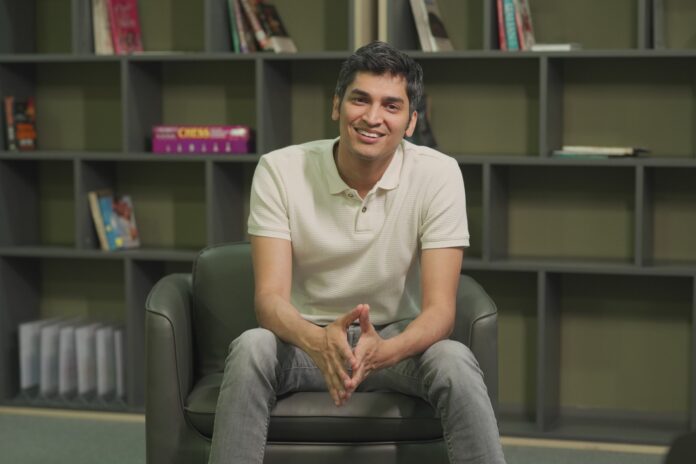Pratham Mittal, Founder, Tetr College of Business
There used to be a time when having a business degree, particularly an MBA, was seen as the key to success. But the rules no longer hold true today in this quickly changing business environment. Today’s world is shaped by volatility, digital disruption, and economic uncertainty. Success, more than ever, is forged through adaptability, experience-based learning, and being capable of reacting to complexity with confidence.
As Mark Zuckerberg once put it, “The biggest risk is not taking any risk… In a world that’s changing really quickly, the only strategy that is guaranteed to fail is not taking risks.” This sentiment embodies the mindset needed of today’s leaders – those willing to step beyond theory and into the uncharted territory of business.
Think of leaders like Steve Jobs, Richard Branson, or Elon Musk. Their stories weren’t guided by the conventional routes. Their education didn’t occur through the four walls of a schoolroom – it was through trial and error, solving real problems, and creating something from scratch.
What business education is missing
For decades, business schools have relied on case studies, lectures, and academic models to shape future leaders. These tools have their value – but they are grounded in hindsight. In today’s context, where the pace of change often outstrips prediction, the gap between what is taught and what is needed has become harder to ignore.
Take, for instance, a recent report that revealed 23% of Harvard Business School’s MBA Class of 2024 were still unemployed months after graduation. These are some of the most highly qualified candidates in the world, but many were underprepared to face the dynamic pressures of the market. And this isn’t isolated to one institution—it’s part of a broader trend that’s increasingly apparent around the globe.
So where is the disconnect? Modern business is defined by challenges such as supply chain disruptions on the global level, the embedding of AI, and new cybersecurity threats. These are rapidly evolving challenges that call for flexibility, sound decision-making based on reality, and great instinct – skills which are not necessarily honed through traditional academia.
It’s one thing to study political risk in theory. It’s quite another to respond to it when it threatens operations in a real business. These are skills best developed through direct experience, not second-hand case studies.
The stagnation of traditional business schools
The truth is, the structure of business education has changed little in nearly a century. Many of the world’s most respected B-schools continue to rely heavily on the same models – especially the case method, which was introduced in the early 20th century. According to a Financial Times study, more than 80% of teaching at top institutions still uses this approach.
But the world beyond the classroom has changed. Business is no longer local, linear, and predictable. It’s global, complex, and ever-changing – driven by digital transformation, climate change, and geopolitical currents. And yet, many school curricula still rely too much on what used to work.
This means students may graduate with strong academic knowledge but be unable to apply it in practice. Many graduate without the confidence to lead in uncertainty or the experience to handle real-world disruption. The consequence? Increasing disparity between education and employability.
Rethinking the blueprint: Learning by doing
If B-schools are to stay relevant, they must pivot from being primarily theoretical to becoming deeply experiential. The real world doesn’t present problems in neatly defined formats – it demands judgement, resilience, and on-the-ground thinking. And the only way to develop those qualities is by practising them.
At Tetr College of Business, we’ve chosen to reimagine the way business is taught. Our students are immersed in live markets across geographies – from launching products in Southeast Asia to managing logistics in the Middle East. They are exposed to cultural complexity, regulatory shifts, and economic turbulence from the very start.
Each semester, they make decisions, take calculated risks, learn from failures, and grow through application. By the time they graduate, they don’t just hold a degree – they carry a portfolio of experience that shows what they’ve built, how they’ve adapted, and what they’ve learnt from the process.
This is a participation-based curriculum, not an observing one. It’s about developing not only good students but also professionals ready to lead in the future.
Developing the right mindset
Today’s leadership requires more than a knowledge of business. It requires a mindset that excels in a state of uncertainty – an entrepreneurial mindset that welcomes change as opportunity rather than threat. It’s less about having the correct answers and more about having the ability to ask the correct questions.
This is the mindset formed by doing. It emerges when students are encouraged to resolve genuine problems with real-world consequences. It develops by reflection, by resilience, and by taking risks – not by learning theories off by heart, but by applying them.
That’s what we strive to create at Tetr. We don’t just teach business theory here; we assist students in developing businesses, leading teams, and making tough decisions – even when the path ahead seems uncertain.
Looking ahead: A new model for leadership
The challenges of the future won’t be addressed by models of the past. Tomorrow’s leaders will have to integrate worldview, technical competence, and the ability to act with uncertainty. And degrees may get one in the door, but they must be supplemented by learning through direct experience to truly have an impact.
The future leaders of business will not be born from tradition. They will be born from institutions that will question, adjust, and lead by example. Because ultimately, like in business, the biggest risk is no risk at all.
